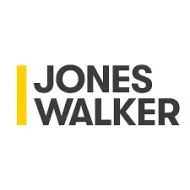- within Antitrust/Competition Law, Law Practice Management and Privacy topic(s)
In recent reporting by Bloomberg, the US Department of Justice (DOJ) confirmed that it is intensifying its scrutiny of companies allegedly evading US tariffs. This renewed focus comes as tariffs—particularly those targeting goods from China—continue to play a prominent role in shaping US trade policy.
Notably, DOJ's Market Integrity and Major Frauds Unit, traditionally known for prosecuting complex financial crimes, has now been directed to prioritize trade fraud. This shift signals an expansion of enforcement beyond the civil penalties traditionally administered by US Customs and Border Protection. The DOJ's reorganization and resource reallocation—along with early signs of increased whistleblower activity and voluntary disclosures—make clear that criminal enforcement is no longer a distant risk for importers and exporters operating in high-tariff environments.
What This Means for US Importers and Exporters
The legal and business implications are significant. While many companies make every effort to comply with US customs regulations, the evolving tariff landscape can create confusion, particularly around country-of-origin determinations, valuation of goods, and transshipment practices.
Among the practices that could attract heightened DOJ attention are:
- Misclassification or undervaluation of imports
- Transshipment of goods through third countries to obscure origin
- Use of shell entities to obfuscate supply chains
- Schemes involving US parties who facilitate or overlook violations
Criminal Enforcement Adds a New Layer of Risk
The expansion of DOJ's role in tariff enforcement presents new compliance risks, particularly because criminal investigations often involve broader and more aggressive tactics, including subpoenas, interviews, and the potential for significant reputational and financial harm—even for companies ultimately cleared of wrongdoing.
DOJ leadership has made clear that they are targeting long-running and large-scale evasion schemes, especially those involving senior executives and substantial financial impact. Companies that fail to conduct adequate diligence or that rely too heavily on informal assurances from overseas suppliers may now find themselves the subject of criminal inquiries.
Key Takeaways for Businesses
- Don't Wait to Review Compliance Practices. Now is the time to evaluate your company's import compliance procedures—including classification, valuation, and country-of-origin determinations. Make sure your teams and suppliers understand the consequences of missteps in these areas and regularly update your company's compliance checklists.
- Pay Attention to DOJ's Voluntary Disclosure Policy. In light of increased enforcement, companies that discover potential wrongdoing internally may benefit from proactively disclosing issues and any potential mitigate fines and penalties. DOJ has indicated that self-reporting may result in significantly reduced penalties. Thus, treat this process as you would the voluntary disclosure process for DHS/CBP and DOC/BIS, and consult with your compliance counsel.
- Be Cautious With Sourcing and Transshipment Practices. Tariff avoidance schemes involving transshipment through low-tariff countries are drawing particular scrutiny. Companies should thoroughly vet their supply chains and be wary of any arrangement that appears designed to obscure origin. Also avoid the high risk countries in which China regularly invests and establishes "manufacturing" facilities.
- Stay Informed—and Be Prepared to Respond. Civil investigative demands and grand jury subpoenas are becoming more common in trade-related cases. Companies should prepare internal protocols for responding to such inquiries and understand their rights and obligations in the event of contact by government investigators.
We're Here to Help
This is a fast-developing area with high stakes for both importers and exporters. Working from our Washington, DC, Houston, Miami and New Orleans offices, our international trade and global commodities and logistics teams monitor these issues and regularly advises clients on trade compliance, internal investigations, and navigating enforcement risks. If your company has questions about its exposure, wants to proactively assess compliance, or needs assistance responding to a government inquiry, please reach out.
Compliance is no longer just a matter of staying out of trouble with customs—it's about protecting your company from the growing reach of criminal enforcement in international trade.
The content of this article is intended to provide a general guide to the subject matter. Specialist advice should be sought about your specific circumstances.




